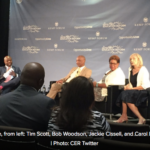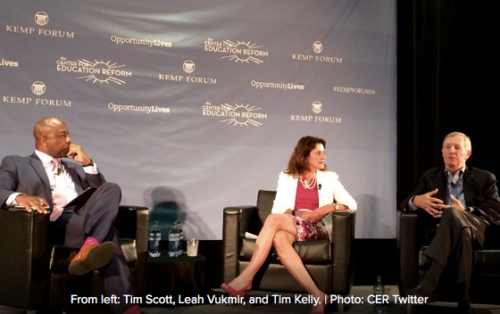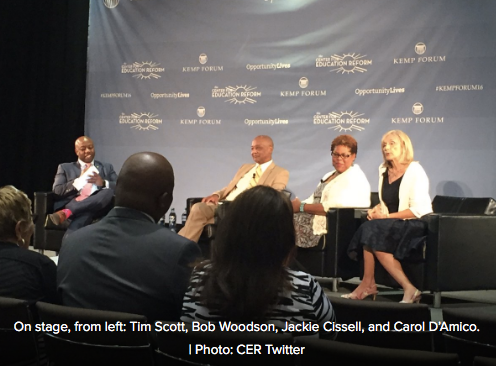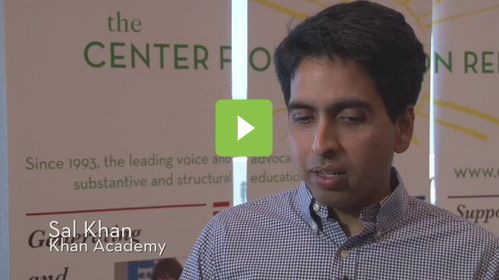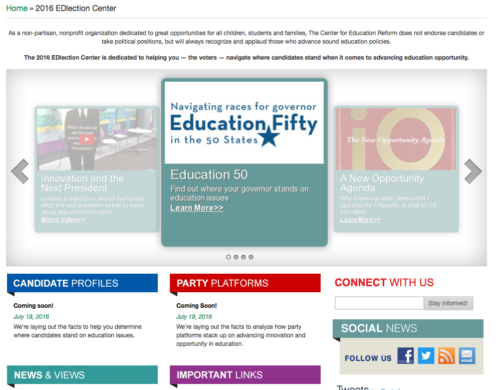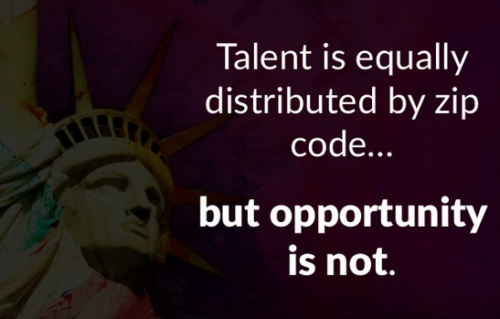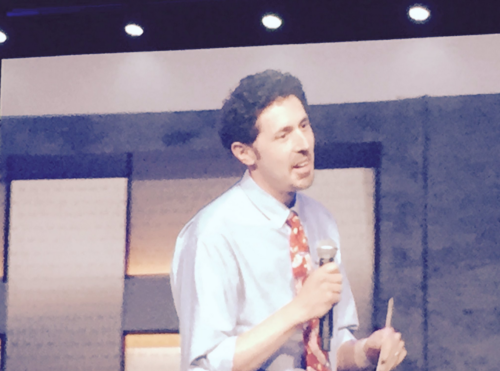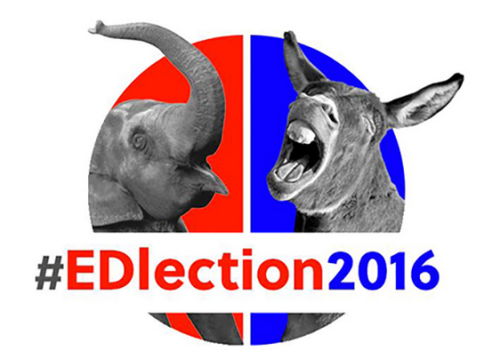by Matt Barnum
The 74
July 2016
The Republican platform has been revised and approved, and is perhaps the most thorough recent discussion of the party’s prevailing view on education policy. Here are six things every parent, teacher and education observer should know about where the GOP now stands on America’s classrooms:
Bipartisan distaste for testing: The 2016 Republican platform “rejects excessive testing and ‘teaching to the test’ and supports the need for strong assessments to serve as a tool so teachers can tailor teaching to meet student needs.” What’s especially notable here is that this is not all that different from the Democratic stance, which says in part, “We are also deeply committed to ensuring that we strike a better balance on testing so that it informs, but does not drive, instruction. To that end, we encourage states to develop a multiple measures approach to assessment.” (Though note that this last excerpt is based on amendment that was approved by the platform committee; the document hasn’t been finalized yet by the Democratic delegates.)
Support for school choice (no matter the type): The GOP platform says “we support options for learning, including home-schooling, career and technical education, private or parochial schools, magnet schools, charter schools, online learning, and early-college high schools. We especially support the innovative financing mechanisms that make options available to all children: education savings accounts (ESAs), vouchers, and tuition tax credits.”
It’s notable that there is no distinction made between different types of schooling options, nor any substantive discussion about ensuring only quality options. For instance, recent evidence has found that virtual schools and vouchers lead to lower test scores for participants — but most of this evidence is grounded in testing, which, as previously stated, the party seems skeptical about.
No fans of Common Core: The platform says, “we likewise repeat our long-standing opposition to the imposition of national standards and assessments, encourage the parents and educators who are implementing alternatives to Common Core, and congratulate the states which have successfully repealed it.”
The United Nations may be brainwashing us: The platform calls for “a constitutional amendment to protect that right from interference by states, the federal government, or international bodies such as the United Nations.” Why this would be necessary is unclear, but it may be alluding to conspiracy theories related to the Common Core, including the idea that it is part of an international plot (led by the U.N. natch) to brainwash students and takeover American education.
More money, same problems: Republicans are not fans of spending money to improve education: “The United States spends an average of more than $12,000 per pupil per year in public schools, for a total of more than $620 billion. That represents more than 4 percent of GDP devoted to K-12 education in 2011-2012. Of that amount, federal spending amounted to more than $57 billion. Clearly, if money were the solution, our schools would be problem-free.” This squares with the view of Trump surrogate (though not veep) Chris Christie, who recently proposed gutting school funding in New Jersey. However, most research evidence shows that spending more money on education does in fact improve student outcomes.
Plenty of overlap with 2012: The 2016 platform is substantially similar to 2012 version. In fact, it’s nearly identical in some places.
2016 — “In sum, on the one hand enormous amounts of money are being spent for K-12 public education with overall results that do not justify that spending level. On the other hand, the common experience of families, teachers, and administrators forms the basis of what does work in education. In Congress and in the states, Republicans are bridging the gap between those two realities.”
2012 — “In sum, on the one hand enormous amounts of money are being spent for K-12 public education with overall results that do not justify that spending. On the other hand, the common experience of families, teachers, and administrators forms the basis of what does work in education. We believe the gap between those two realities can be successfully bridged, and Congressional Republicans are pointing a new way forward with major reform legislation.”
2016 — “Their D.C. Opportunity Scholarship Program should be expanded as a model for the rest of the country. We deplore the efforts of Congressional Democrats and the current President to eliminate this successful program for disadvantaged students in order to placate the leaders of the teachers’ unions.”
2012 — “The Republican-founded D.C. Opportunity Scholarship Program should be expanded as a model for the rest of the country. We deplore the efforts by Congressional Democrats and the current President to kill this successful program for disadvantaged students in order to placate the leaders of the teachers’ unions.”










